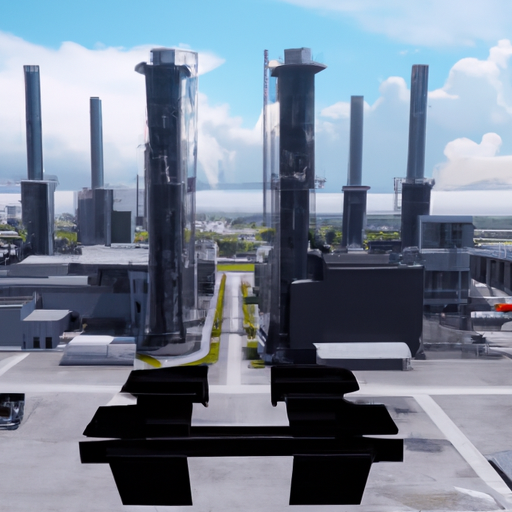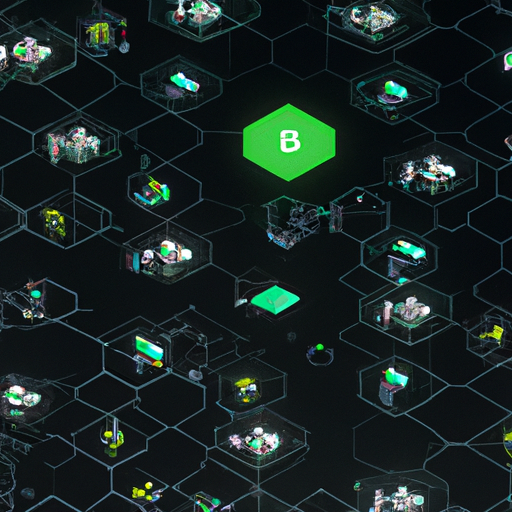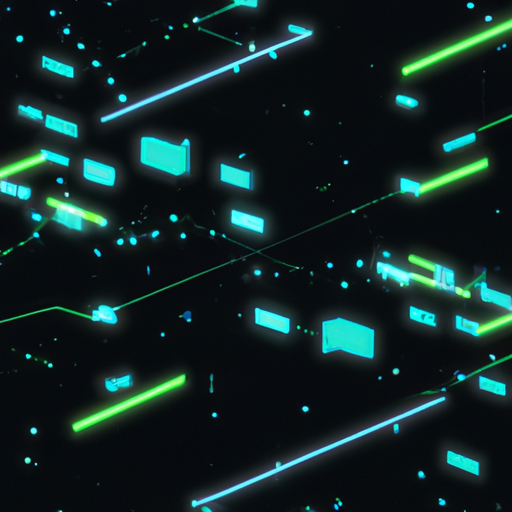-
Table of Contents
- Introduction
- Impact Insights and DAO Dilemmas: Navigating the Challenges in the DAO Revolution
- Tokenomics in the DAO Revolution: Shaping the Future of Collaboration
- Consensus Codes and Collective Capital: The Driving Forces Behind the DAO Revolution
- Decoding DAO Defined: The Key to Unlocking the Future of Collaboration
- Understanding DAO Revolution: A Comprehensive Guide to the Future of Collaboration
- Q&A
- Conclusion
“DAO Revolution: Powering Tomorrow’s Collaboration Today!”
Introduction
DAO Revolution: Shaping the Future of Collaboration is an exploration into the transformative potential of Decentralized Autonomous Organizations (DAOs). DAOs are blockchain-based entities that operate through smart contracts, eliminating the need for a centralized authority. This revolutionary approach to collaboration is redefining traditional organizational structures, enabling more transparent, democratic, and efficient operations. The DAO Revolution is not just reshaping business models, but also challenging societal norms of governance, decision-making, and wealth distribution. This introduction provides a glimpse into the profound impact of DAOs on the Future of Collaboration across various sectors and industries.
Impact Insights and DAO Dilemmas: Navigating the Challenges in the DAO Revolution
The Decentralized Autonomous Organization (DAO) revolution is shaping the Future of Collaboration, bringing about a new era of decentralized decision-making and collective governance. This innovative model, powered by blockchain technology, is transforming the way organizations operate, fostering a more democratic and transparent environment. However, as with any disruptive technology, the DAO Revolution also presents a unique set of challenges that need to be navigated carefully.
The DAO model is essentially a digital cooperative, where members collectively make decisions and manage resources. This is a significant departure from traditional hierarchical structures, where decision-making power is concentrated at the top. DAOs operate on smart contracts, which are self-executing contracts with the terms of the agreement directly written into code. This ensures that decisions are made transparently and automatically, eliminating the need for intermediaries.
The impact of this shift towards decentralized governance is profound. It democratizes decision-making, giving every member a voice and a vote. It also fosters transparency, as all transactions and decisions are recorded on the blockchain, which is publicly accessible and immutable. This can significantly reduce corruption and fraud, as it is virtually impossible to alter or delete records once they have been added to the blockchain.
However, the DAO Revolution is not without its dilemmas. One of the main challenges is the legal status of DAOs. Since they operate on the blockchain, they are not tied to any specific geographical location, making it difficult to determine their legal jurisdiction. This can create complications when it comes to issues like taxation and dispute resolution.
Another challenge is the potential for decision-making paralysis. Since every member has a vote, it can be difficult to reach a consensus, especially in larger DAOs. This can slow down decision-making and hinder the organization’s ability to respond quickly to changing circumstances.
Moreover, while the transparency of DAOs can deter corruption and fraud, it can also pose privacy concerns. Since all transactions and decisions are publicly accessible, sensitive information can potentially be exposed. This can deter individuals and businesses from participating in DAOs, limiting their potential for growth and innovation.
Finally, there is the issue of technical complexity. DAOs operate on complex blockchain technology and smart contracts, which can be difficult for the average person to understand and navigate. This can create a barrier to entry, limiting the accessibility and inclusivity of DAOs.
Despite these challenges, the DAO Revolution holds immense potential. It is reshaping the Future of Collaboration, fostering a more democratic and transparent environment. However, for this revolution to be successful, these challenges need to be addressed. This will require a concerted effort from all stakeholders, including DAO members, developers, regulators, and legal experts.
In conclusion, the DAO Revolution is a transformative force, bringing about a new era of decentralized decision-making and collective governance. However, it also presents a unique set of challenges that need to be navigated carefully. By addressing these challenges, we can harness the full potential of the DAO Revolution, shaping a future where collaboration is truly democratic, transparent, and inclusive.
Tokenomics in the DAO Revolution: Shaping the Future of Collaboration
The Decentralized Autonomous Organization (DAO) revolution is shaping the Future of Collaboration in unprecedented ways. At the heart of this revolution is a concept known as Tokenomics, a unique blend of economics and digital tokens that is redefining how we understand and engage in collaborative efforts.
Tokenomics is the study of the economic systems that drive the creation, distribution, and usage of digital tokens. In the context of DAOs, Tokenomics is a critical component that ensures the smooth operation of these decentralized entities. It provides a framework for incentivizing participation, managing resources, and facilitating decision-making processes.
In traditional organizations, decision-making power is often concentrated in the hands of a few individuals. However, DAOs operate on a different principle. They are governed by smart contracts and powered by blockchain technology, which allows for a more democratic and transparent decision-making process. In a DAO, every member has a say in the organization’s direction and decisions, and this is where Tokenomics comes into play.
Tokens in a DAO serve multiple purposes. They can represent voting rights, granting holders the ability to influence the organization’s decisions. They can also serve as a form of reward, incentivizing members to contribute to the organization’s success. Furthermore, tokens can be used as a medium of exchange within the DAO ecosystem, facilitating transactions and interactions among members.
The distribution of tokens in a DAO is a critical aspect of its Tokenomics. It needs to be fair and equitable to ensure that all members have an opportunity to participate and contribute. This is often achieved through a process known as a token sale or Initial Coin Offering (ICO), where tokens are sold to potential members. The funds raised from the ICO are then used to finance the DAO’s operations and projects.
However, Tokenomics is not just about the creation and distribution of tokens. It also involves the management of these tokens to ensure the long-term sustainability of the DAO. This includes strategies for controlling the supply of tokens to prevent inflation, mechanisms for burning or destroying tokens to reduce supply, and policies for rewarding active and contributing members.
The Tokenomics of a DAO also plays a crucial role in managing risks and ensuring the security of the organization. By aligning the incentives of all members, Tokenomics can help prevent malicious activities and promote cooperation. For instance, if a member’s tokens are tied to the success of the DAO, they are less likely to act in ways that could harm the organization.
In conclusion, Tokenomics is a vital component of the DAO Revolution, shaping the Future of Collaboration in profound ways. It provides a robust framework for incentivizing participation, managing resources, and facilitating decision-making processes in a decentralized and democratic manner. As the DAO Revolution continues to unfold, the importance of understanding and implementing effective Tokenomics will only grow. It is a fascinating field that combines elements of economics, technology, and social science, and it is set to redefine how we collaborate and organize in the digital age.
Consensus Codes and Collective Capital: The Driving Forces Behind the DAO Revolution

The Decentralized Autonomous Organization (DAO) revolution is shaping the Future of Collaboration, driven by two key elements: Consensus Codes and Collective Capital. These two forces are transforming the way we work, invest, and make decisions, creating a new paradigm of collaboration that is decentralized, democratic, and transparent.
Consensus Codes are the backbone of DAOs. They are the rules and protocols that govern the operation of these organizations, encoded in blockchain technology. Unlike traditional organizations, where decisions are made by a centralized authority, in DAOs, decisions are made collectively by the members, based on these Consensus Codes. This ensures that every member has a voice and that decisions are made in a democratic and transparent manner.
The Consensus Codes are not just about decision-making. They also govern the distribution of resources, the allocation of tasks, and the resolution of disputes. They are designed to ensure fairness, transparency, and efficiency. They eliminate the need for intermediaries and reduce the risk of corruption and manipulation. They also enable the organization to operate autonomously, without the need for a central authority or management.
Collective Capital is the other driving force behind the DAO Revolution. In traditional organizations, capital is usually concentrated in the hands of a few investors or shareholders. In DAOs, capital is collectively owned and managed by the members. This means that every member has a stake in the organization and shares in its profits and losses.
Collective Capital is not just about financial resources. It also includes the skills, knowledge, and expertise of the members. In a DAO, every member is a contributor and a beneficiary. This creates a sense of ownership and responsibility, and encourages active participation and collaboration.
The combination of Consensus Codes and Collective Capital is creating a new form of organization that is more democratic, transparent, and efficient. It is also more resilient and adaptable. In a DAO, there is no single point of failure. If a member leaves or a resource is lost, the organization can continue to operate smoothly. It can also adapt quickly to changes in the environment or the market, thanks to its decentralized and autonomous nature.
The DAO Revolution is not without challenges. There are technical, legal, and cultural hurdles to overcome. The technology is still in its early stages and there are issues of scalability, security, and usability to address. The legal status of DAOs is also unclear in many jurisdictions, and there are questions about liability, governance, and compliance. And culturally, the shift from centralized to decentralized collaboration requires a change in mindset and behavior.
However, the potential benefits of the DAO Revolution are immense. It can democratize access to capital and opportunities, reduce inequality, and promote innovation and sustainability. It can also empower individuals and communities, and create a more inclusive and equitable economy.
In conclusion, the DAO Revolution, driven by Consensus Codes and Collective Capital, is shaping the Future of Collaboration. It is a powerful and promising trend that is set to transform not just the way we work and invest, but also the way we live and interact with each other. It is a revolution that is worth watching and participating in.
Decoding DAO Defined: The Key to Unlocking the Future of Collaboration
The Decentralized Autonomous Organization (DAO) revolution is shaping the Future of Collaboration, offering a new paradigm for organizing and managing online communities. DAOs are blockchain-based entities that operate through smart contracts, eliminating the need for a centralized authority. This revolutionary concept is redefining the way we collaborate, making it more democratic, transparent, and efficient.
DAOs are essentially digital cooperatives, owned and managed by their members. They operate on the principles of consensus and decentralization, with decisions made collectively by the community. This democratic approach ensures that every member has a voice, fostering a sense of ownership and engagement. DAOs are governed by a set of rules encoded in a smart contract, which is a self-executing contract with the terms of the agreement directly written into code. This ensures transparency and trust, as the rules cannot be changed without the consensus of the community.
The power of DAOs lies in their ability to facilitate collaboration on a global scale. They enable individuals from around the world to come together and work towards a common goal, regardless of geographical boundaries. This is particularly relevant in today’s digital age, where remote work and online communities are becoming increasingly prevalent. DAOs provide a platform for these communities to collaborate effectively, leveraging the collective intelligence of the group to make informed decisions.
Moreover, DAOs offer a solution to the challenges of traditional organizational structures. In conventional organizations, decision-making is often centralized, leading to inefficiencies and a lack of transparency. DAOs, on the other hand, distribute decision-making power among all members, ensuring that decisions are made in the best interest of the community. This not only enhances efficiency but also fosters a culture of accountability and trust.
Furthermore, DAOs have the potential to democratize access to resources. In a DAO, resources are managed collectively by the community, ensuring fair distribution. This is a stark contrast to traditional organizations, where resources are often controlled by a select few. By democratizing access to resources, DAOs can help to reduce inequality and promote economic empowerment.
However, the DAO Revolution is not without its challenges. The concept is still relatively new, and there are many technical and regulatory hurdles to overcome. For instance, the legal status of DAOs is still unclear in many jurisdictions, and there are concerns about the security and scalability of blockchain technology. Despite these challenges, the potential benefits of DAOs are immense, and they represent a promising solution to the limitations of traditional organizational structures.
In conclusion, the DAO Revolution is reshaping the Future of Collaboration, offering a more democratic, transparent, and efficient way of organizing and managing online communities. While there are still many challenges to overcome, the potential of DAOs is undeniable. As we continue to navigate the digital age, DAOs could very well be the key to unlocking the Future of Collaboration. They represent a new paradigm for how we work together, one that is rooted in consensus, decentralization, and collective intelligence. The DAO Revolution is not just about technology; it’s about reimagining the way we collaborate and interact in the digital world.
Understanding DAO Revolution: A Comprehensive Guide to the Future of Collaboration
The Decentralized Autonomous Organization (DAO) revolution is rapidly reshaping the Future of Collaboration, offering a new paradigm for organizational structure and decision-making. DAOs are blockchain-based entities that operate through smart contracts, eliminating the need for traditional hierarchical management structures. This revolutionary concept is transforming the way we think about collaboration, offering a more democratic, transparent, and efficient way to manage collective resources.
DAOs operate on the principles of decentralization and autonomy. They are not controlled by a single entity or a group of individuals but are governed by a set of pre-programmed rules embedded in smart contracts. These rules are transparent and immutable, ensuring that all participants have equal access to information and decision-making processes. This level of transparency fosters trust among participants, as they can verify the actions and decisions made within the organization.
One of the most significant advantages of DAOs is their ability to facilitate direct and democratic decision-making. In traditional organizations, decisions are often made by a small group of individuals at the top of the hierarchy. In contrast, DAOs allow all participants to have a say in decision-making processes, based on a consensus mechanism. This ensures that decisions reflect the collective will of the participants, promoting a more equitable distribution of power and resources.
Moreover, DAOs offer a high level of efficiency and scalability. Since they operate on blockchain technology, they can execute transactions and enforce agreements automatically through smart contracts. This eliminates the need for intermediaries, reducing costs and increasing speed. Furthermore, DAOs can operate globally, allowing individuals from different parts of the world to collaborate and contribute to a common goal.
However, the DAO Revolution is not without challenges. The most notable is the legal and regulatory uncertainty surrounding DAOs. Since they operate in a decentralized manner, it’s unclear how they fit into existing legal frameworks. This uncertainty can deter potential participants and limit the growth of DAOs. Additionally, DAOs are vulnerable to smart contract bugs and hacking attacks, which can lead to significant losses.
Despite these challenges, the potential of DAOs to reshape the Future of Collaboration is undeniable. They offer a new way to organize and manage collective resources, fostering a more democratic, transparent, and efficient collaboration. As blockchain technology continues to evolve, we can expect to see more innovative applications of DAOs, further pushing the boundaries of what’s possible in collaborative endeavors.
In conclusion, the DAO Revolution is a game-changer in the realm of collaboration. It offers a glimpse into a future where organizations are decentralized, autonomous, and democratic, where decision-making is transparent and inclusive, and where efficiency and scalability are the norm rather than the exception. As we navigate this new landscape, it’s crucial to understand the principles, advantages, and challenges of DAOs, to harness their potential effectively and responsibly. The Future of Collaboration is here, and it’s decentralized.
Q&A
1. Question: What is a DAO?
Answer: A DAO, or Decentralized Autonomous Organization, is a blockchain-based system where rules are encoded as computer programs called smart contracts. It’s a way for people to collaborate and make decisions without a centralized authority.
2. Question: How is DAO revolutionizing collaboration?
Answer: DAO is revolutionizing collaboration by enabling a democratic and transparent system where all decisions are made collectively. It allows for global collaboration, as anyone with internet access can participate, and it eliminates the need for trust, as all transactions are transparent and verifiable on the blockchain.
3. Question: What are some potential applications of DAOs?
Answer: Potential applications of DAOs include decentralized finance (DeFi), where DAOs can be used to create and manage digital assets, and governance, where DAOs can be used to make collective decisions in a community or organization. They can also be used in content creation, where creators can be directly rewarded by their audience.
4. Question: What are the challenges facing the adoption of DAOs?
Answer: Challenges facing the adoption of DAOs include regulatory uncertainty, as it’s unclear how DAOs fit into existing legal frameworks, and technical challenges, as the technology is still relatively new and can be difficult to understand and use. There are also concerns about security, as DAOs can be vulnerable to hacking.
5. Question: How can DAOs shape the Future of Collaboration?
Answer: DAOs can shape the Future of Collaboration by enabling a new form of organization where power is distributed among participants rather than concentrated in a central authority. This can lead to more democratic and transparent decision-making processes, and can enable global collaboration on a scale that was not previously possible.
Conclusion
The DAO Revolution is significantly shaping the Future of Collaboration by introducing decentralized autonomous organizations that operate on blockchain technology. This revolution is transforming traditional business models, promoting transparency, and enabling a more democratic decision-making process. It is also fostering global collaborations, where anyone, regardless of their location, can contribute to a project or an organization. However, it also presents new challenges such as regulatory issues and security risks. Overall, the DAO Revolution is paving the way for a more inclusive, efficient, and transparent collaborative future.



